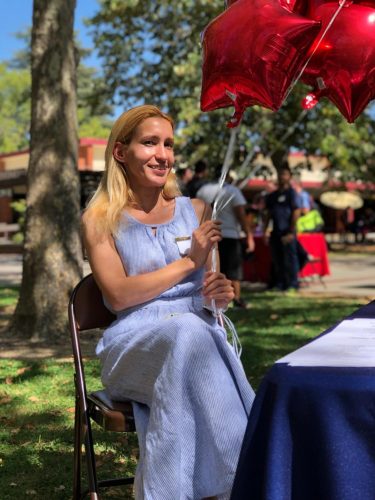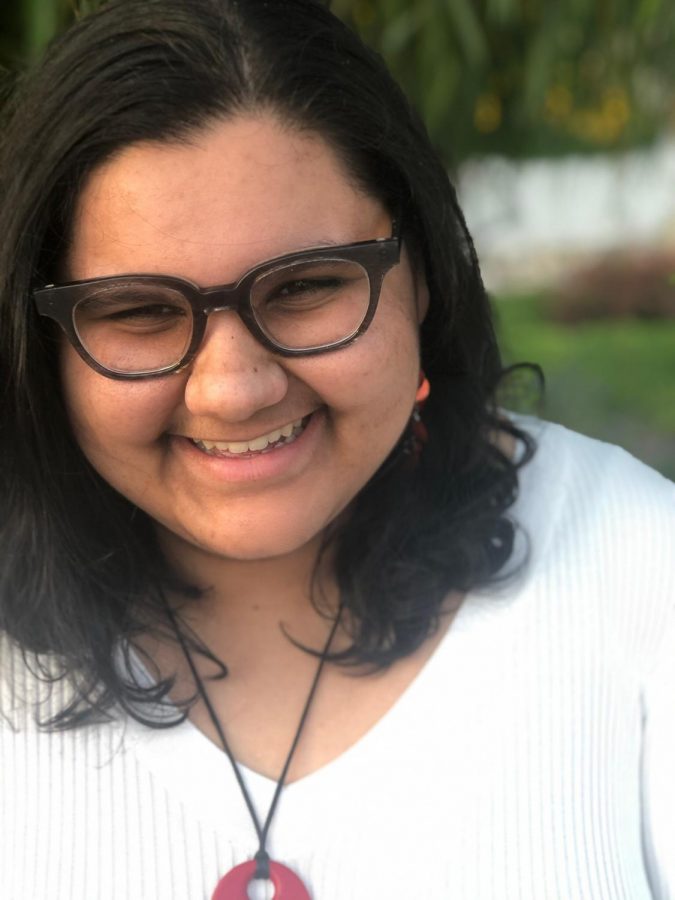How will ARC students be voting for the election?
Student Senate representatives dish on how they will vote this election
Ahead of the election this November, two American River College student body representatives, Naomi Dasari and Afsoon Aflaki, have differing political viewpoints and encourage students to vote in the upcoming election.
According to Dasari and Aflaki, these are their personal opinions and are not endorsed by the Associated Student Body.
Dasari said she will be voting for former Vice President Joe Biden because of her more liberal leaning views.
“Joe Biden and Kamala Harris align more closely with my values than the current president does. Especially when it comes to social and environmental issues, humanitarian crises and involvement in the international community,” Dasari said.
Aflaki said she will be voting for current president Donald J. Trump. Aflakli explained that she supports Trump because of his economic strategies and wanting to reopen the economy amidst COVID-19.
Aflaki, who in the past has voted for Speaker of the House Nancy Pelosi, believes that Trump has been treated badly by Democrats and the media.
“Donald J. Trump has been prosecuted too much, because ever since day one when [he] got into [office] him and his staff have been accused of so many things,” Alfaki said.
Dasari and Aflaki said they diligently researched the propositions on the California ballot before formulating their voting decisions.
According to CalMatters, a nonpartisan nonprofit that analyzes California politics, Proposition14 is a $5.5 billion bond to keep funding stem cell research for the California Institute for Regenerative Medicine. The CIRM, which conducts research in brain and central nervous system diseases, has come under financial struggle and is almost on the brink of financial ruin.
Dasari says she will be voting yes on Prop 14 as she believes in funding schools and more research.
“I think what they’re doing is really important and I do support [the initiative] and I ended up doing more research … and deciding on the trustworthiness of the California Institute of Regenerative Medicine,” Dasari said.
Although Aflaki supports conservative viewpoints she also said she will be voting yes.
“As a conservative even though technically it should be a ‘no,’ it’s a ‘yes,’ because I want less government control, but I want that money for education,” Aflaki said.
According to Cal Matters, Proposition 15 is a measure to increase commercial property taxes to increase funding for local schools and community colleges. Homeowners and small businesses are withheld from paying property tax increases with a yes vote. Opponents saying no to the proposition say rent increases might come from commercial business owners in rent increases for rental tenants and business rents.
Dasari says she is voting yes, as she sees funding education as one of her priorities.
“It increases specifically [funding] in the school system and local government, but I can understand that for homeowners this would be a big [economic] concern,” Dasari said.
Aflaki is voting no because, according to her research, this proposition will raise rents.
“For me, that’s a hard ‘no’ because…the way the wording in this law in this proposal, it’s just general enough that once it’s passed, it’s going to pave the way to increase all property taxes and especially all housing taxes,” Aflaki said.
Proposition 16, is an affirmative action policy change that would allow race, ethnicity and gender to be a determining factor in university admissions and public governmental hiring.
Dasari says she’s voting yes, because she thinks diversity should be a determining point to erase generations of unjust racial policies.
“So for education for jobs, there has been always and continues to be discrimination against minorities when it comes to admissions and when it comes to hiring and I think it is very important to combat that…,” Dasari said.
Aflaki, says that as an immigrant she has seen the need for more diversity and this is why she is voting yes.
“Yes, on this one. I think diversity is a big game right now and giving that I’m looking at it from a student perspective,” Aflaki said.
Voting yes on Proposition 17 would restore the right to vote for more than 50,000 parolees.
Dasari says she’s voting yes, as she believes this is an issue of equality.
“I mean they have served their debt to society and they are still citizens who deserve equal representation in governance.”
Aflaki, also says she’s voting yes, because she has personally seen how unjust the system can be.
“If you have paid your debt to society, and if you completely rehabilitated yourself, I believe you have the right to get back into society,” Aflaki said.
Proposition 18 aims at amending the California constitutions to allow 17-year-olds that will be 18 by the day of the election to be able to vote in the primary and special elections.
Dasari says she’s voting yes, because her younger sister could not vote for her preferred candidate during the primary.
“This one is interesting because that is what happened to my sister, this is her first time that she’ll be voting in an election and she was in that position when she was 17 during the primary and she wanted to vote for Elizebeth Warren,” Dasari said.
Aflaki is voting no, because she thinks young people are not mature enough to not be influenced by family and teachers.

Proposition 20 would make changes in how certain property offenses and misdemeanors would rise to felonies.
Dasari says she’s voting no, because of her views on racial injustice and the prison industrial complex.
“This would increase overcrowding in prison systems,” Dasari said.
Aflaki will be voting no, because she says the law was written badly, even though she would like to see more reforms in prison sentences.
“This for me is a no, because I think it’s been written in such a sloppy way… If the crime deserves a harder punishment, then I believe it’s the duty of the prosecutor to be able to prove that,” Aflaki said.
Proposition 21 would expand local government authority to enact rent control on residential properties.
Dasari, who lives on a rental property, says she’s voting yes.
“It offers more security for renters, which is really, really important during this pandemic as finances are tight and it’s absolutely crucial that people have a constant living space,” Dasari said.
Aflaki says she is also a renter but will be voting no.
“I think there is a better way if the local community can get involved with the landlords and bring more protection for the renters rather than just going about it this way,” said Aflaki.
A ”yes” vote on Proposition 22 would exempt rideshare workers from being considered as employees and be considered independent contractors and be denied employee benefits.
Dasari says she is voting no, because she favors fair labor practices.
“If Prop 22 gets passed it would allow these rideshare companies to be exempt from a new law that would require them to treat their workers like employees. So they couldn’t get protections like paid sick leave and unemployment insurance,” Dasari said.
Aflaki, who often uses rideshare applications, says she is voting yes, because she believes that rideshare application prices will be raised to subsidize workers’ pay.
“Even though I take Lyft, and Uber all the time, I want them to remain independent contractors… by doing this, they would have taken a lift away from many students from many low income people who were using these services… and then we’re going to add a lot of people to the unemployment right line, like right in the middle of the COVID-19 pandemic, where we’re having issues giving money to people who are already out of a job,” Aflaki said.
A yes vote on Proposition 24 would create a new California agency that would enforce privacy laws and would promote more privacy from businesses and tech companies with personal data.
Dasari says she is voting yes because she feels a person should own their personal information and data should be kept private.
“I think children need to be protected and the government should do something to stop identity theft and having Facebook do as they please with our personal information,” Dasari said.
Aflaki says she’s voting no, because she believes the creation of the new agency will be costly and bureaucratic. Aflaki says that the government would now have access to our personal information if the law passes.
“I don’t think it’s going to accomplish anything. Except that I get the feeling that now a government entity is going to have its leg in there to be able to control these agencies and to see how much information they get. I don’t want to be controlled or monitored by Facebook,” Aflaki said.
A yes vote on Proposition 25 would allow the replacement of money bail systems, with a risk based algorithm system that would determine flight risk in pending criminal cases.
Dasari said she will be voting no, because she thinks this will negatively impact how people of color will be treated.
Aflaki says she is voting yes because she has personally seen the effects of the cash bail system.
“For some families and some people, it’s really hard to come up with this bail money, especially when very, very low income people have a hard time coming up with some sort of a value for their lives,” Aflaki said.












